
Design Django models such that your future self will thank you 👋🏾
@Tarun_Garg2
Coming up 📚
- What is this talk about?
- Setting up the premise
- Key themes
- Audit your Models
- Timestamp your fields
- Soft deleting entries
- Use of choices
- Denormalisations
- ....
- Bring down the curtain
What is this talk about 🤷🏻
What is this talk about 🤷🏽♀️
Setting up premise 🐒
Setting up premise 🐒
Let's build Y.A.M.A. (Yet Another Messaging Application)

coz why not?
Y.A.M.A. 👻
Let's see a high-level database design for Y.A.M.A.
Y.A.M.A. Adventures 👻

Y.A.M.A. Adventures 👻
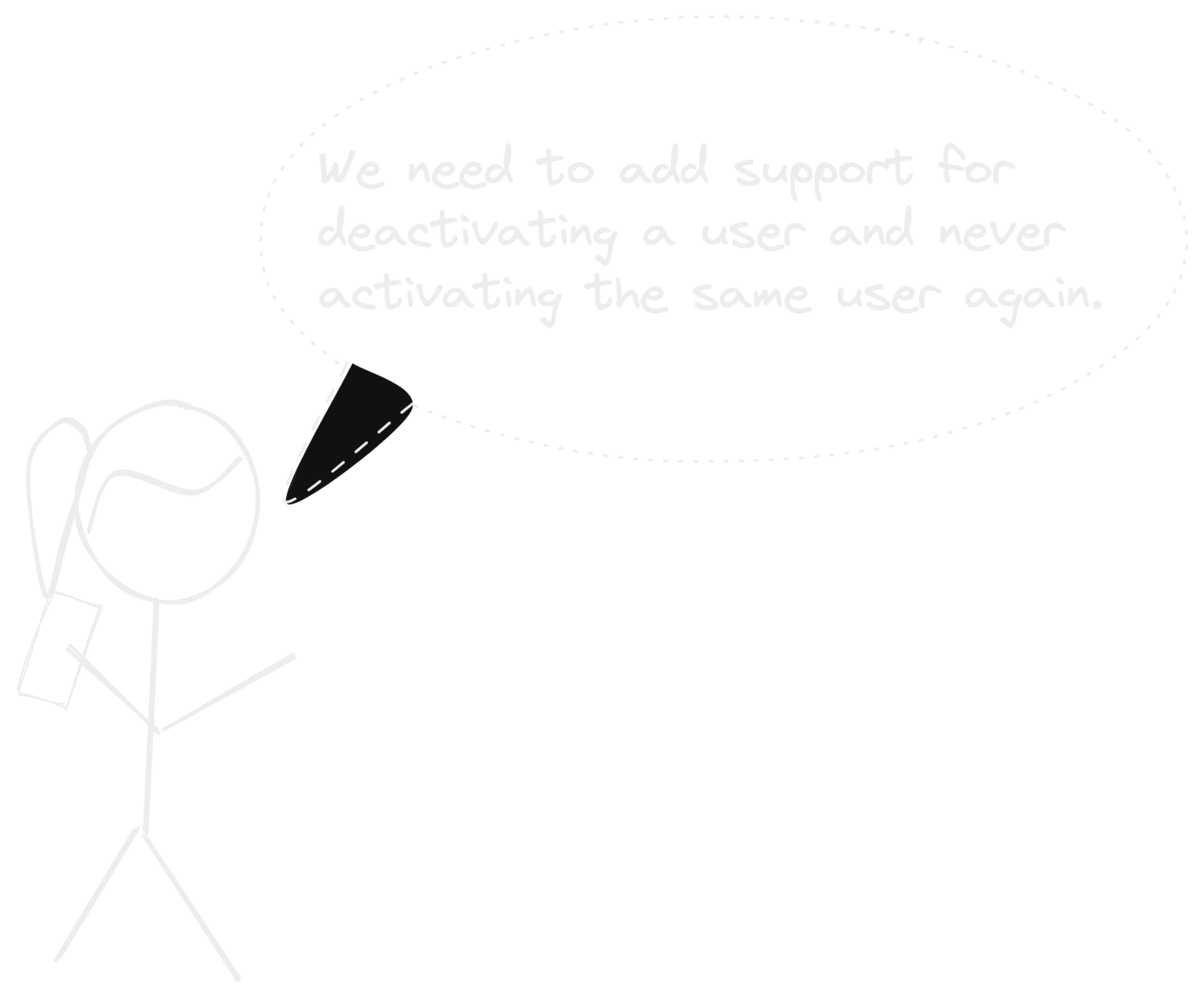

class User(models.Model):
username = models.CharField(unique=True)
profile_picture = models.URLField()
...user related fields

Y.A.M.A. Adventures 👻
PM:- Hey, can you tell me why does this user exists in our system? 👀
Developer:- Sure, allow me some time to debug 🦟

Y.A.M.A. Adventures 👻
Developer:- I need to know when was this user created to debug this; and I don't have that info in my schema.

Theme #1
Audit your models 📝
Audit your models 📝
What is audit?
**googles**
An official examination of the present state of something.
Audit your models 📝

Have some metadata fields which
will help you audit your models
Audit your models 📝
class CreateUpdateAbstractModel:
created_at = models.DateTimeField(auto_now_add=True)
updated_at = models.DateTimeField(auto_now=True)
class Meta:
abstract = True
def __str__(self):
return str(self.id)Most basic form of auditing can be achieved by following snippet
For a more advanced version of auditing, you can add other fields such as -
updated_by, created_by, deleted_at, deleted_by, raw_json
Audit your models 📝
Things I learned from experience!!!
Having default=timezone.now has benefits like you can specify the value of the created_at while testing without having to mock timezone.now()

auto_now_add is a Django level construct vs default=timezone.now is database level construct
Audit your models 📝
Things I learned from experience!!!

Performance implications of having raw_json in models
- Django defaults to fetching all fields
- The way Postgres handles oversized attributes via Toast
Alternative?
• Evaluate for your use-case; after all, this is good to have.
• Have JSON as a 1:1 field in some other model
• Override Django manager to defer JSON
Audit your models 📝
you'll not regret it ;)
class User(models.Model):
created_at = models.DateTimeField(default=timezon.now)
updated_at = models.DateTimeField(auto_now=True)
...other auditing fields
username = models.CharField(unique=True)
profile_picture = models.URLField()
...We can alter our Y.A.M.A. user model with :-
Y.A.M.A. Adventures 👻

Y.A.M.A. Adventures 👻

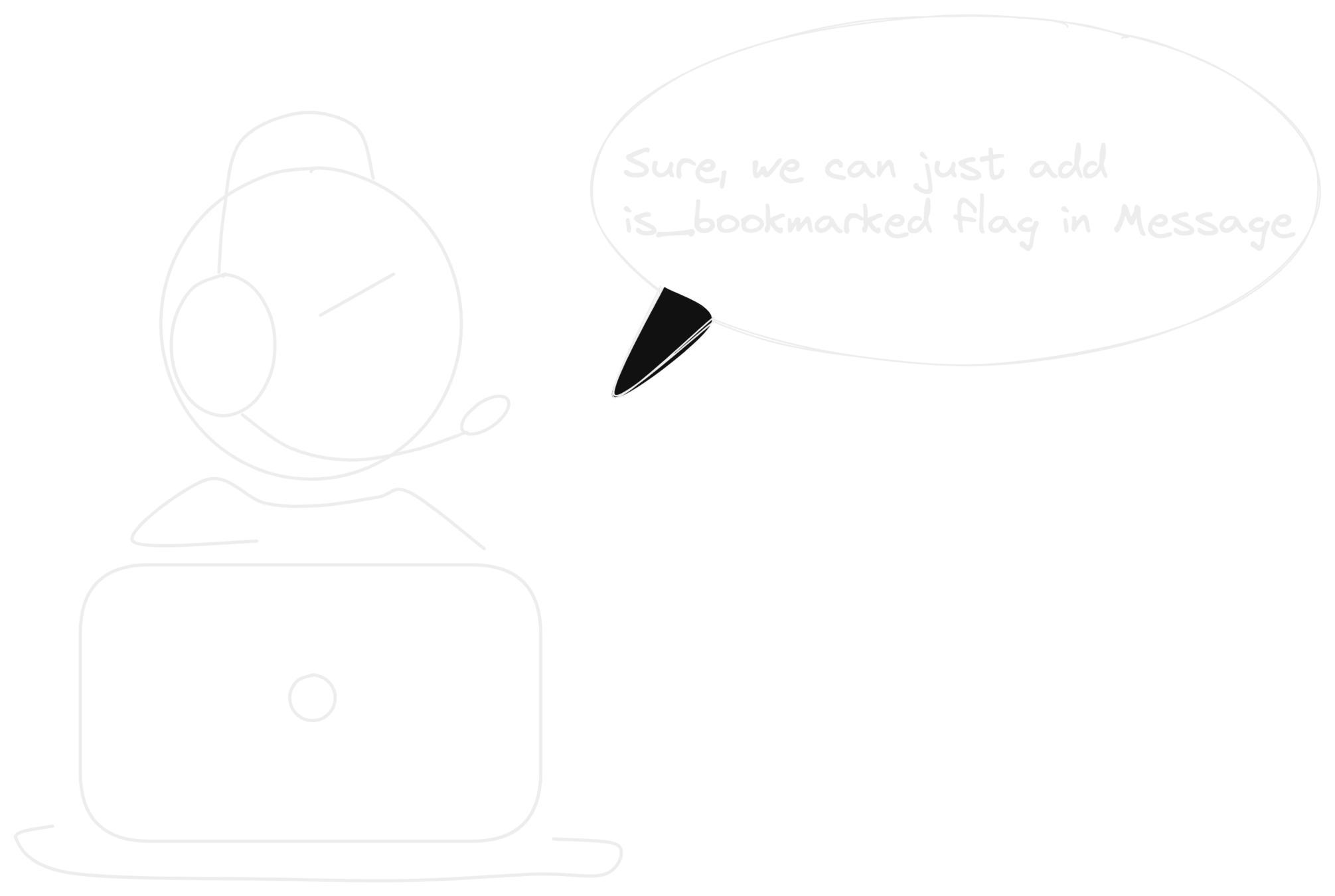
Y.A.M.A. Adventures 👻
3 weeks later....
No no, nothing dramatic happens!
It's just that the boolean field can be swapped with something better here.
Theme #2
Timestamp your fields ⌚️
Timestamp your fields ⌚️
A digital record of the time of occurrence of a particular event.
What is timestamp?
**googles**
Timestamp your fields ⌚️
Essence almost remains the same, but having timestamped fields will provide benefits in future.


Timestamp your fields ⌚️
Things I learned from experience!!!
- Storage cost is almost negligible compared to readability and other benefits it provide
- This is hard to replicate this for NullBooleanField, since now we've three states to maintain
Timestamp your fields ⌚️
Things I learned from experience!!!
It's not either timestamp OR boolean debate always, sometimes you gotta have both of them also.

Timestamp your fields ⌚️
you'll not regret it ;)
class Message(models.Model):
created_at = models.DateTimeField(default=timezone.now)
updated_at = models.DateTimeField(auto_now=True)
...other auditing fields
user = models.ForeignKey(User)
message = models.TextField()
bookmarked_at = models.DateTimeField(null=True)
...We can now change our Message model schema with :-
Y.A.M.A. Adventures 👻
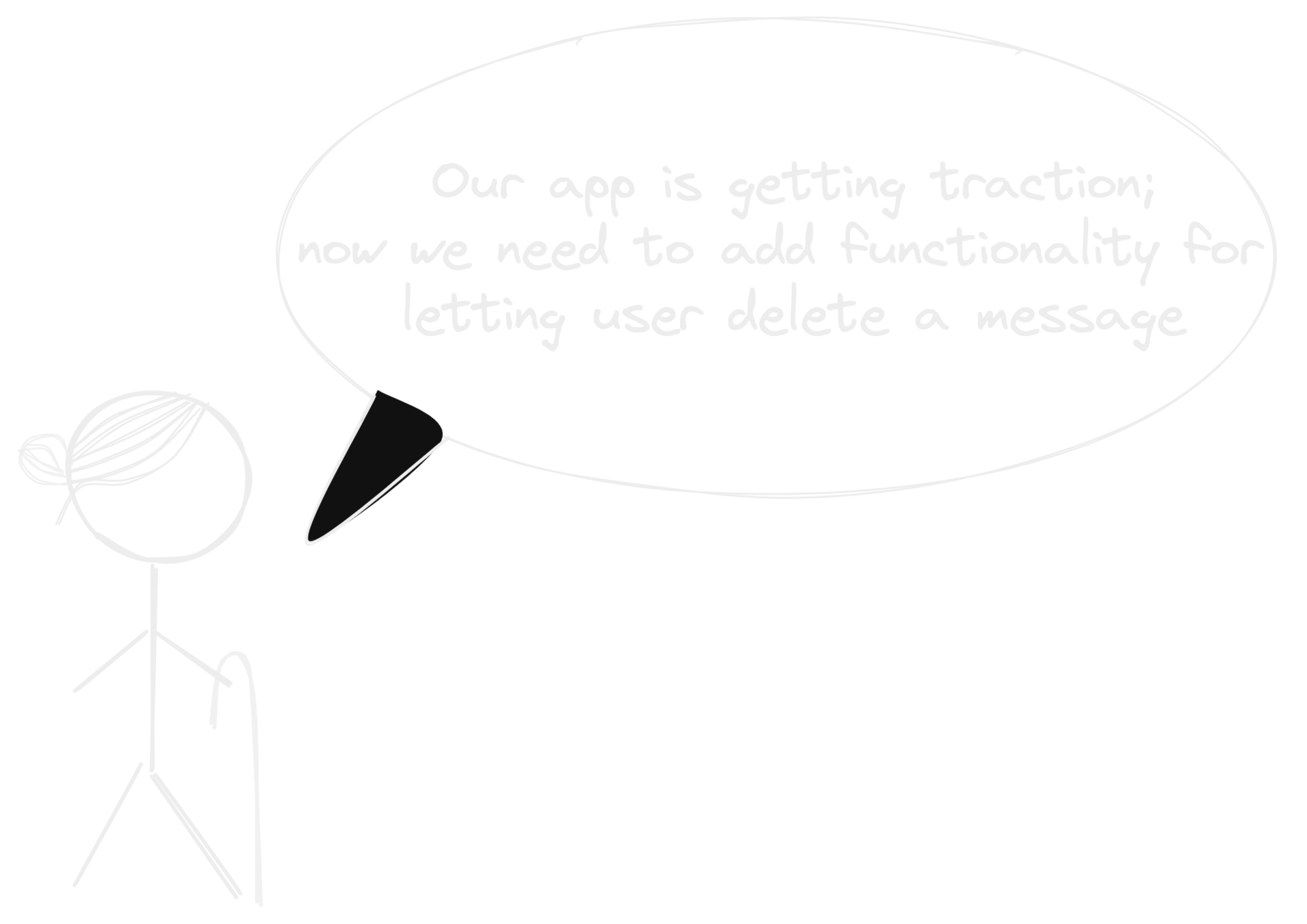
Y.A.M.A. Adventures 👻

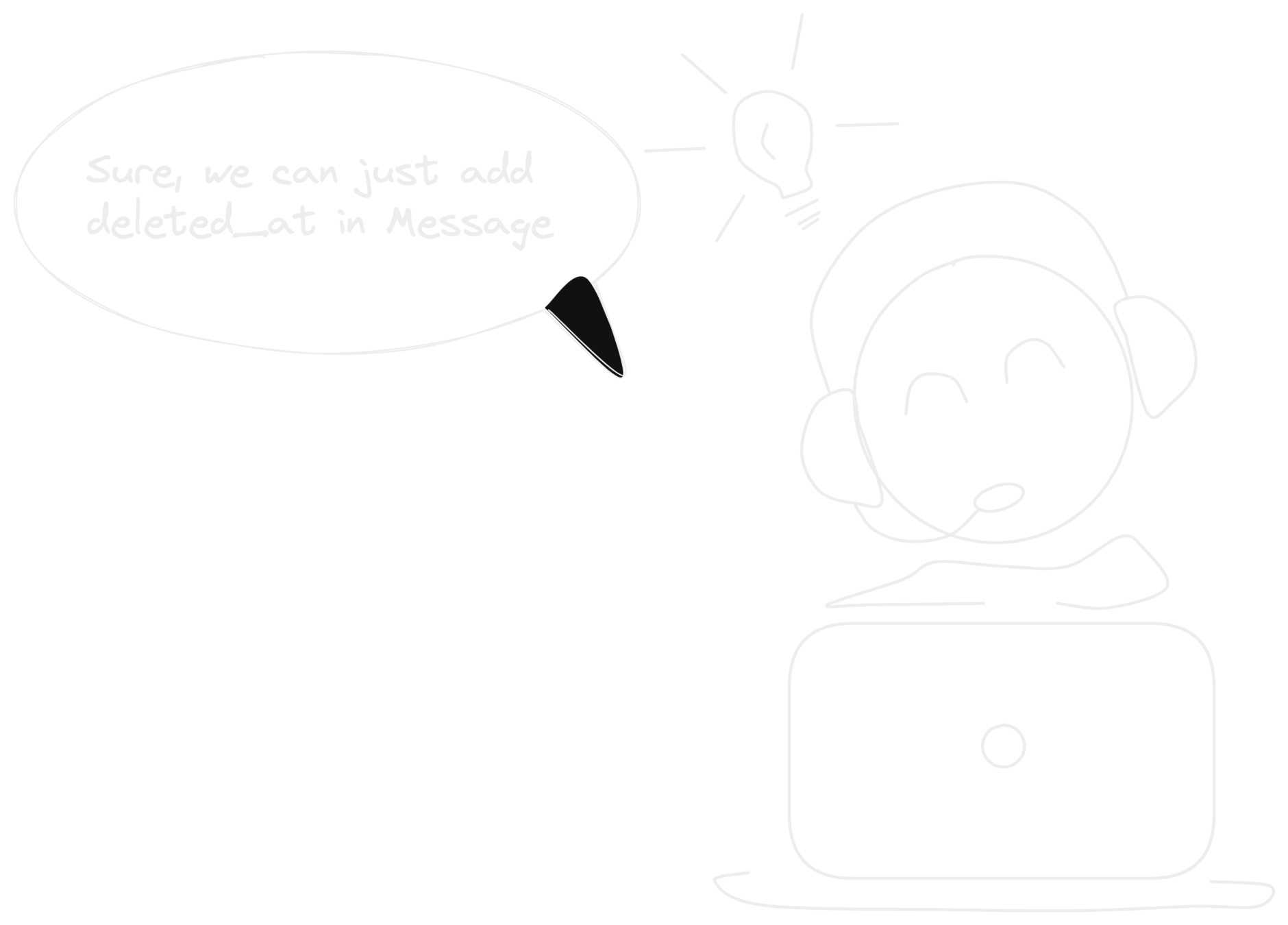
class Message(models.Model):
...auditing fields
user = models.ForeignKey(User)
deleted_at = models.DateTimeField()
...Y.A.M.A. Adventures 👻
(In future)
For every query involving messages, we had to make sure to add
deleted_at is NULL flag and it became a pain.
For Organizations where the deletion was frequent; then it also became a performance overhead to maintain.
Theme #3
Soft delete or not ✍🏽
Soft delete or not ✍🏽
What is soft delete?
**duck-duck-go**
"Soft delete" in database lingo means that you set a flag on an existing table which indicates that a record has been deleted, instead of actually deleting the record.
Soft delete or not ✍🏽
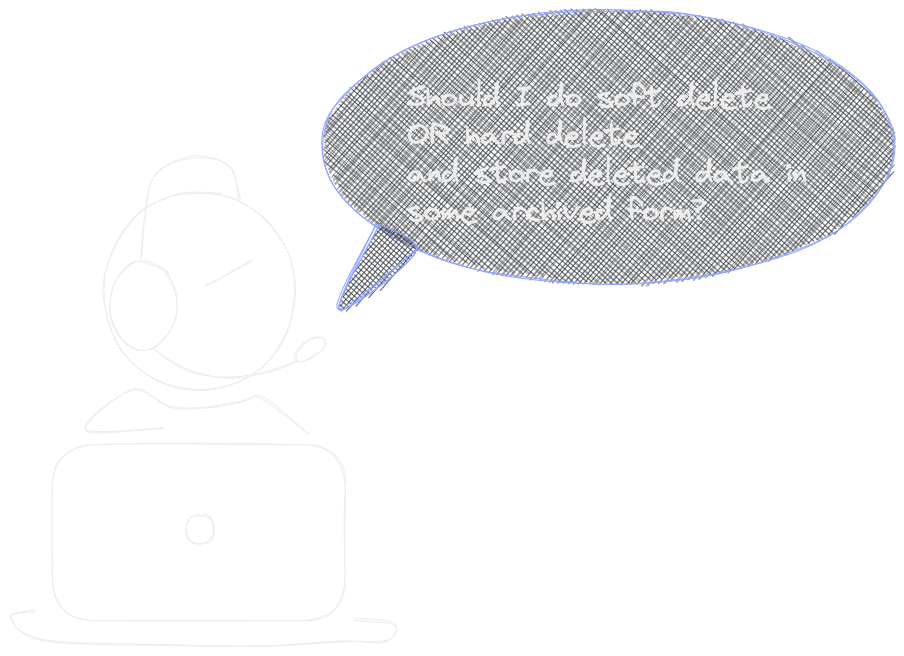

Soft delete or not ✍🏽

Soft delete or not ✍🏽

Soft delete or not ✍🏽

Soft delete or not ✍🏽
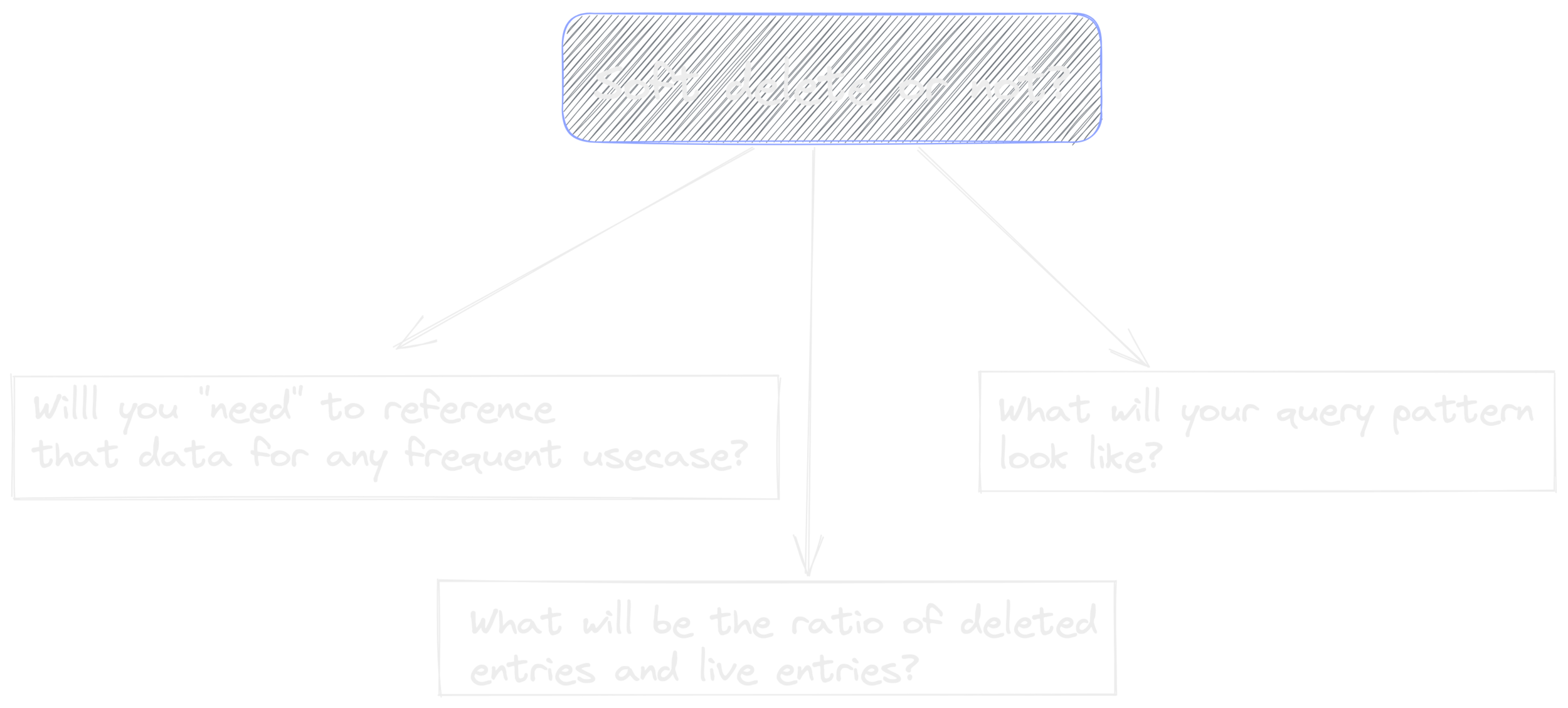
Soft delete or not ✍🏽
In the case of Y.A.M.A.; we rarely needed to fetch deleted messages(except for compliance audit).
class DeletedMessage(models.Model):
...auditing fields
body = models.TextField()
deleted_at = models.DateTimeField()
original_message_id = models.PositiveIntegerField()
....Y.A.M.A. Adventures 👻
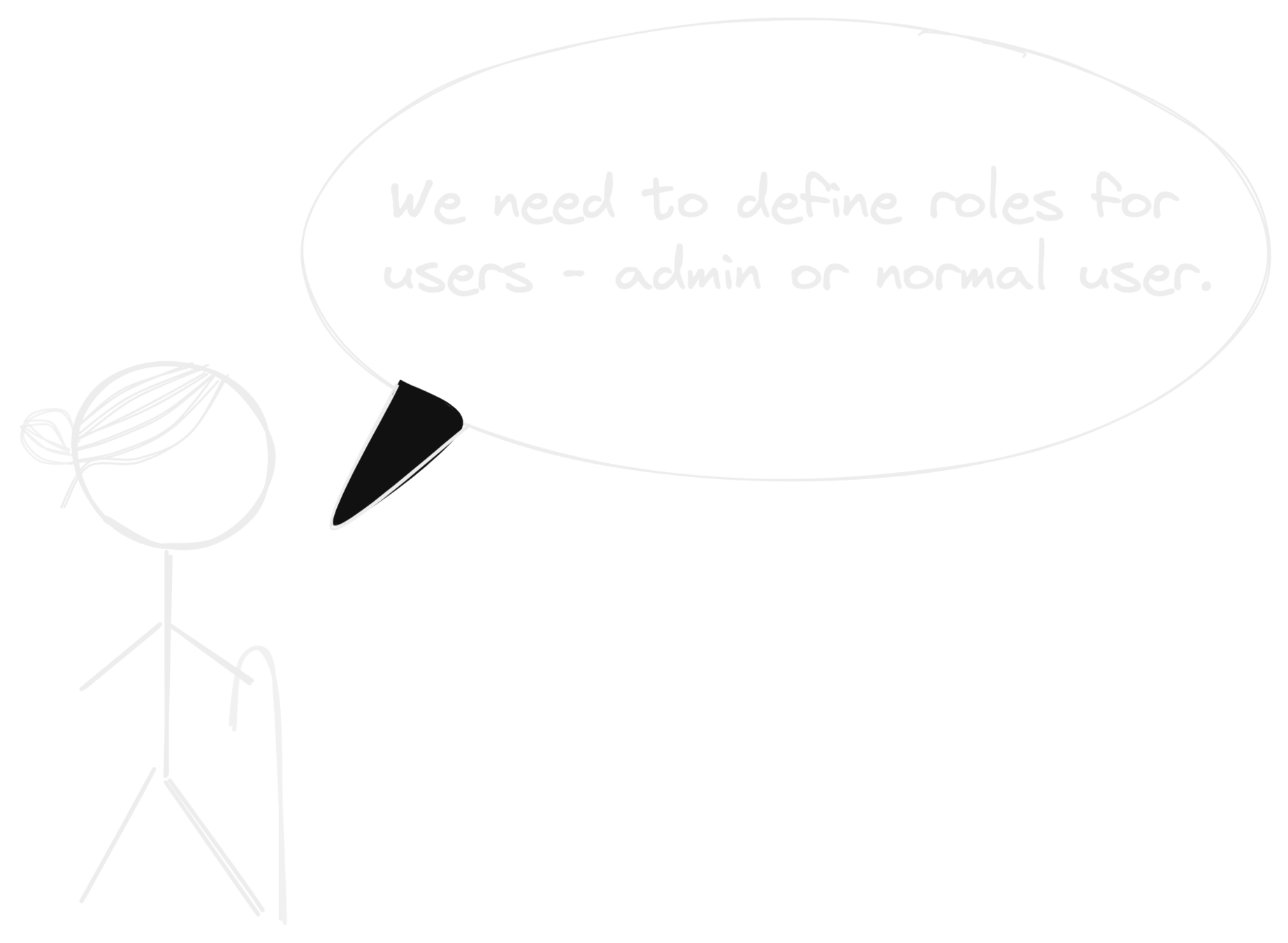
Y.A.M.A. Adventures 👻

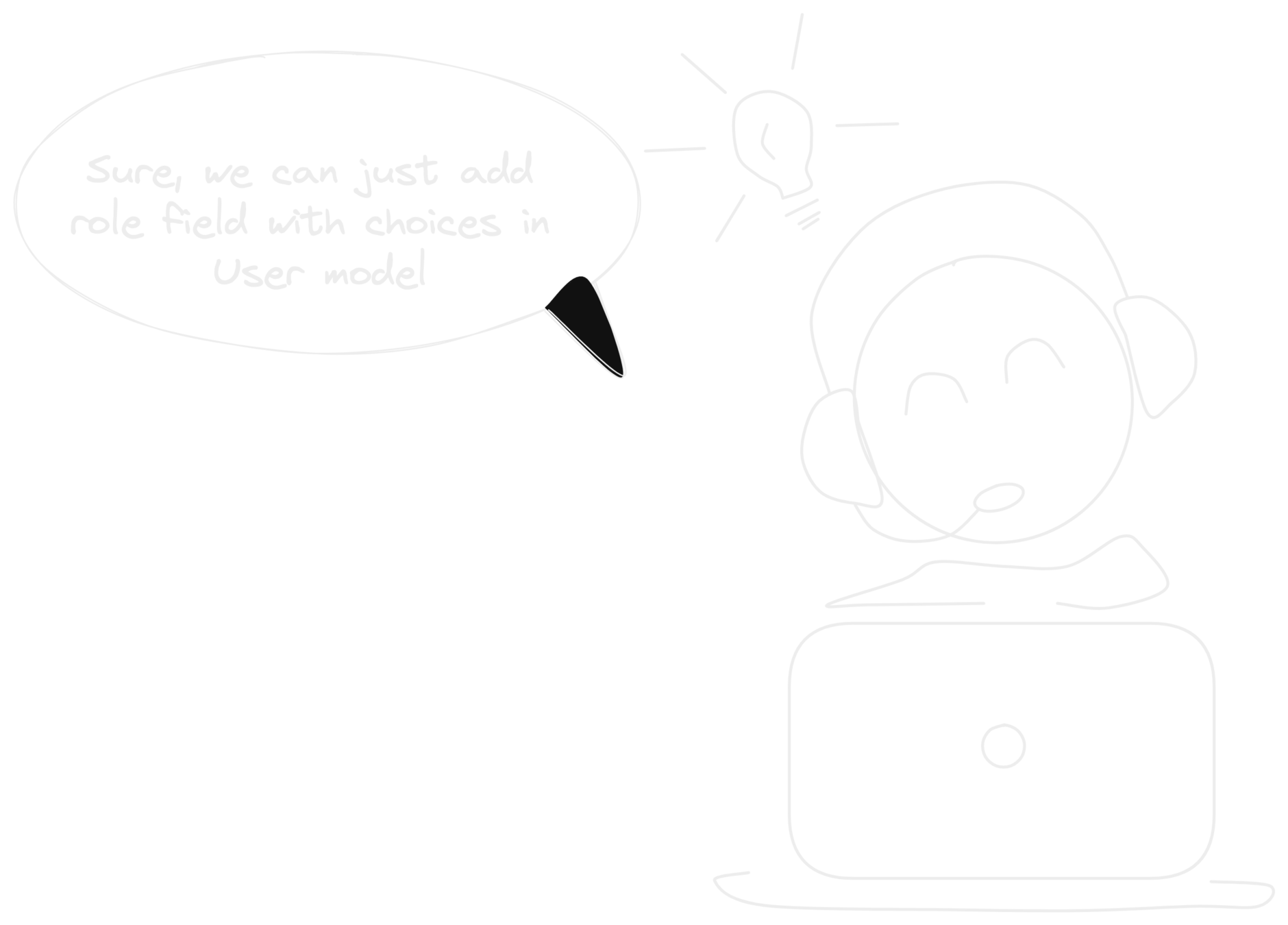
Y.A.M.A. Adventures 👻
USER_ROLE_CHOICES = [
(0, 'Normal'),
(1, 'Admin'),
(2, 'Archived')
]
class User(models.Model):
... other fields
role = models.PositiveIntegerField(choices=USER_ROLE_CHOICES, default=0)
| pk | username | role |
|---|---|---|
| 4 | Test 4 | 0 |
| 5 | Test 5 | 2 |
select * from user where role=1Y.A.M.A. Adventures 👻
It Was Good Until It Wasn't
Django choices just do validation on ModelForm level i.e. it does not ensure constraint & quality check at the lowest level which is database.
Remembering all numerical mapping for roles became a pain
user.role = 3
user.save() # this will workTheme #4
Use of choices
Use of choices
Things I learned from experience!!!
Keep strings instead of numbers for value; the benefits outweighs the disadavantages
USER_ROLE_CHOICES = [
('normal', 'Normal'),
('admin', 'Admin'),
('archived', 'Archived')
]
class User(models.Model):
... other fields
role = models.CharField(choices=USER_ROLE_CHOICES, default='normal', max_length=10)
...
select * from user where role='normal'Use of choices
Things I learned from experience!!!
Keep choices as constant variables and namespaced.
class UserRole(models.TextChoices):
NORMAL = 'normal', 'Normal'
ADMIN = 'admin', 'Admin'
ARCHIVED = 'archived', 'Archived'
class User(models.Model):
...
role = models.CharField(choices=UserRole.choices, default=UserRole.NORMAL, max_length=10)
...Use of choices
Things I learned from experience!!!
Since Django does not enforce constraints for choices on Database level; we can force it to do so via :-
class UserRole(models.TextChoices):
NORMAL = 'normal', 'Normal'
ADMIN = 'admin', 'Admin'
ARCHIVED = 'archived', 'Archived'
class User(models.Model):
...
role = models.PositiveIntegerField(choices=UserRole.choices, default=UserRole.NORMAL)
...
class Meta:
constraints = [
models.CheckConstraint(
name="%(app_label)s_%(class)s_role_valid",
check=models.Q(role__in=UserRole.values),
)
]Y.A.M.A. Adventures 👻
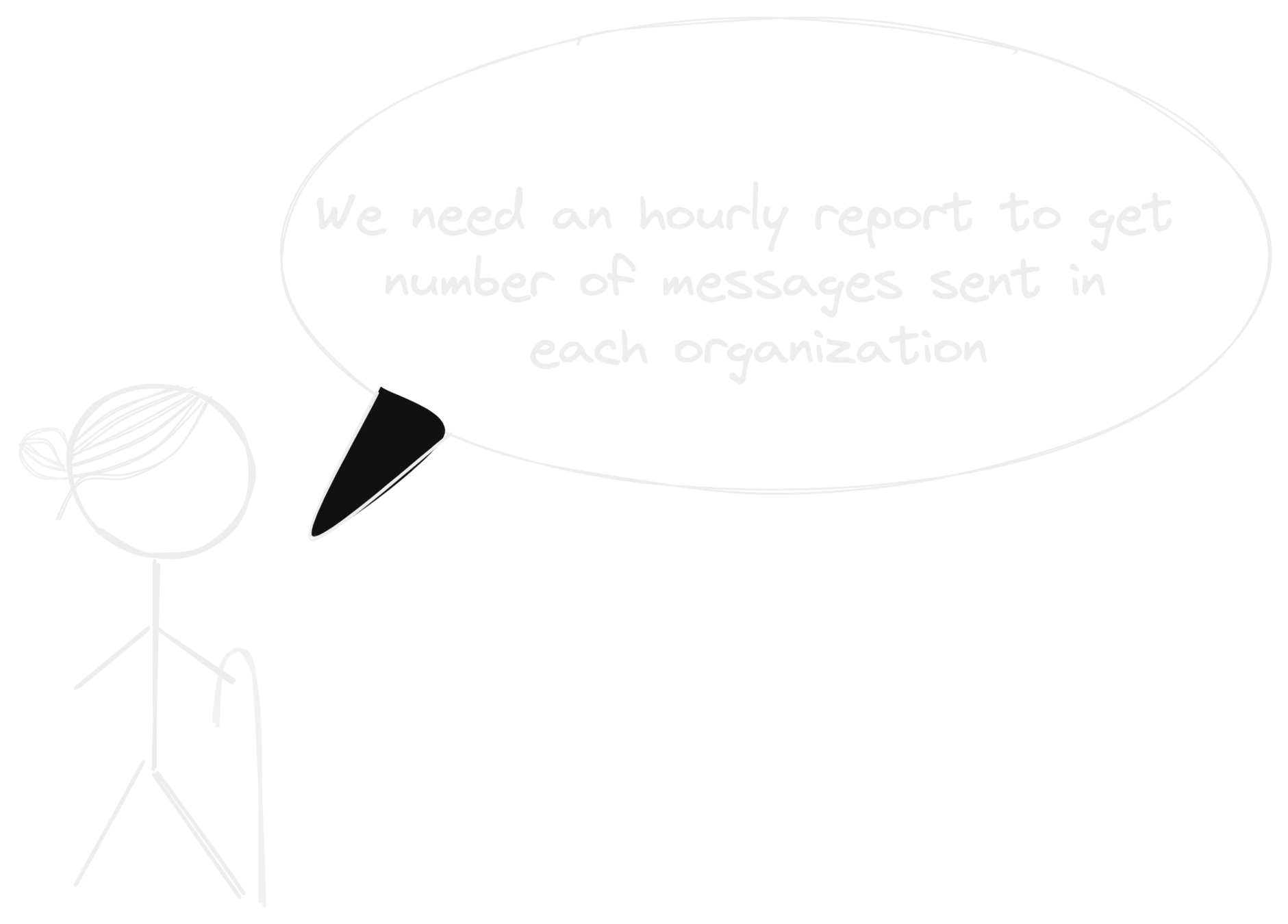
Y.A.M.A. Adventures 👻


Y.A.M.A. Adventures 👻
SELECT org.name, count(msg.id) from message msg
JOIN user u ON u.id=msg.user_id
JOIN organization org ON org.id=org.organization_id
GROUP BY 1Run following SQL every hour
Things were fine in the citadel until one Friday database server crashed due to this query 👹
Reason? Expensive join cost between user & message
Theme #5
Denormalization 🙌🏻
Denormalization 🙌🏻
What is denormalization?
**bings**
the process of adding precomputed redundant data to an otherwise normalized relational database to improve the read performance of the database
Denormalization 🙌🏻
It is OK to denormalize, in fact, denormalization might be one of the top reasons why new age databases are able to scale up

Before :-
Denormalization 🙌🏻

Option #1 :-

Option #2 :-
Denormalization 🙌🏻
- Everything done in excess is bad, and the same is true for both normalization and denormalization
- Everything done for software optimization is a tradeoff; Here the tradeoff is between - faster reads & slower writes v/s faster writes & slower reads
Things I learned from experience!!!
Bring down the curtain 🤗
- Auditing your models can go a long way in making debuggability easy
- When tempted to use boolean flags for something, evaluate whether you can use timestamp fields instead;
Kill two birds with one stone
-
Soft delete is good but it can be the root of problems also; so evaluate.
-
Use Django choices wisely and maintain consistency.
-
Denormalization is ok; is a tradeoff.
Don't follow any advice blindly from here(or anyone) without evaluating your use case.
🙏🏻 Open to
feedback or questions!

@Tarun_Garg2

tarungarg546